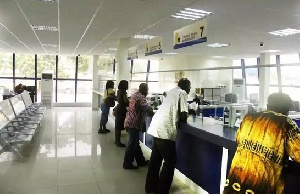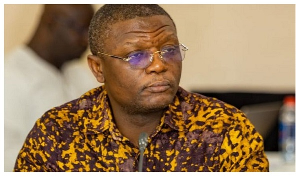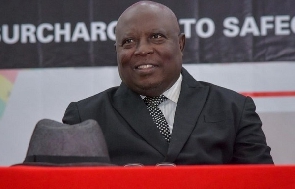The Institute of Chartered Accountants Ghana (ICAG) has released a report on their probe into the Ghana Banking Scandal – after one full year!
So yet again, true to form – as happens in ghana every week, at least one high public official or institution does or says something that raises more questions than provides answers; this time it is the ICAG…..and a few others.
The ICAG report details “errors” committed by auditing firms – not individual auditors – against International Accounting Standards (IAS) and recommends punishment in the form of huge monetary fines, but only to the offending auditing firms, not the individual practitioners as has been done with lawyers and doctors.
It is interesting to note the use of the word “errors” when billions of Cedis are involved and livelihoods of many clients have been lost.
The report contains many areas of contention; here are a few.
First, the Disciplinary Committee could have found out and informed us how that same defaulting audit firm treated such transactions in the past within that same bank or when handling other clients with similar circumstances.
This will help determine whether the auditing firm/bank has failed to transfer knowledge over the years or they simply had a sinister motive.
Second, the Disciplinary Committee could have found out why the best practice rules were not being followed in the case of the banks in question, and if they were being followed in case of other non-bank clients that these same auditors audited. This could also help prove motive and or systemic weaknesses in banking, accounting training and practice.
Third, the Disciplinary Committee should tell us whether the assigned individual auditors sought “professional counselling” from their senior partners/advisors in the auditing profession and whether any document trails exist. This will help us know the state and level of training of our accounting and auditing gurus and advisors and establish whether “a jury of their peers” will judge the need for a gradualist or immediate compliance with all those IAS rules stated, within the Ghanaian context, and if not why.
Fourth the Disciplinary Committee failed to tell us whether in some of the examples stated those huge sums (of a quantum of 30 million cedis etc) wrongly recorded under different IAS rules were done in one single “error” recording or done systematically over time. This could also help establish motive/ignorance of procedure.
It is difficult to understand why the ICAG announced its decision when criminal prosecutions are yet to begin and to date not one arrest has been made.
Several further questions arise that need to be answered with clarity and responsibly.
Does the ICAG have no rules for punishing individual members because they are covered by a corporate veil?
Are there no rules for banning or suspending defaulting firms?
What proactive steps are being taken to make sure accounting firms adhere strictly to IAS protocol?
What about the internal bank auditors – any sanctions for feeding bogus information to the external auditors? Does the ICAG plan to address the press or public directly?
Certainly this is not the time nor place for window dressing or pussyfooting. Widows, pensioners – some with serious health issues, and honest hardworking folk have been stiffed, hoodwinked and wrong-footed by the arrogant rogue kingpins of our banking system.
After reading the ICAG report my mentor summed it up succinctly as “The unfailing ignorance and dishonesty of the Ghanaian middle class, coupled with their congenital sycophancy – the classic Dunning Kruger types.”
And I can just see them now in my mind’s eye, closing their meetings after issuing such a fudged report and, driving away in their SUVs to their ventilation challenged concrete homes located in kiosk strewn neighbourhoods with dodgy sanitation.
Tweaaaa.
Opinions of Saturday, 7 September 2019
Columnist: Isaac Ato Mensah



















